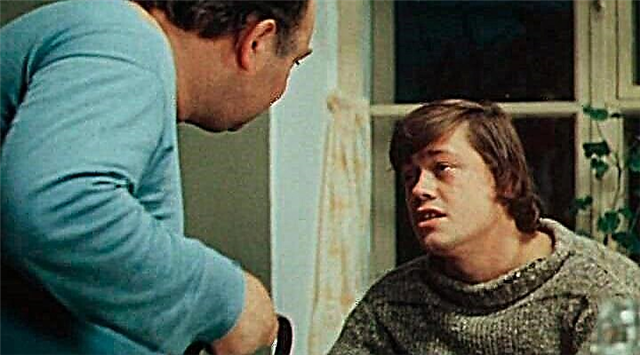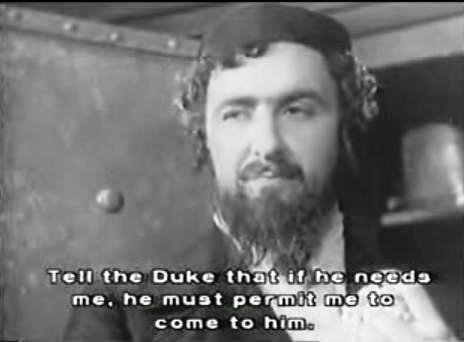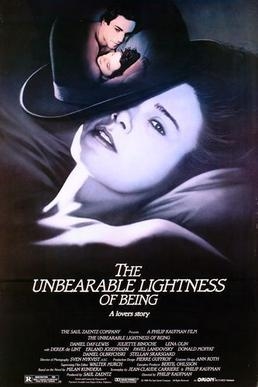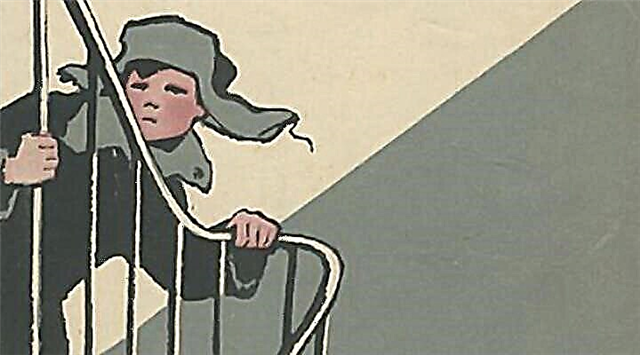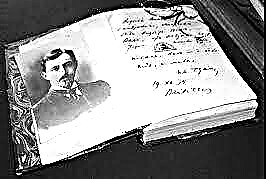(433 words) The narration of the novel "The Captain's Daughter" is conducted in the first person by the main character himself - Peter Grinev. The novel is a kind of memoir, thanks to which the author was able to easily convey the feelings and emotions of the characters and helped readers to penetrate deeper into the action of the novel. Also, the first-person narration allows the author to write in a simpler and more lively language, and the reader, in turn, is easier to perceive the text and immerse himself in the plot.
The speech of the characters of “The Captain's Daughter” is stylized as historical time in the work. In the novel, the action takes place during the rebellion of Emelyan Pugachev. The author himself noted that he only somewhat archaized the language of the story, in order to stylize the text in some way under the historical flavor. Pushkin does not randomly mix the language of several eras, but merely stylizes the general appearance so that the reader understands what is written and the timing is not disturbed. The speech of the heroes is not the same type - each has its own shades, thanks to which the reader sees various and vivid examples of colloquial speech of that era.
To convey precisely the Pugachev era, Pushkin uses a lot of outdated phraseological units that appeared at that time: “shave into a circle”. Also used were the idioms inherent in that time, but now obsolete: “college adviser”, “clerical order”, “beneficent decree”, etc. There are turns in which there is an archaic component: lexical (“submit the petition”), phonetic (“take in full”, archaic case form (“Lord Vladyka”), archaic use of the number (“go to Turk”), archaic verb form ( “Can be tolerated, falls in love - getting used to it”), archaic control (“what a sin to hide”).
Among other things, the novel contains a large number of outdated military turns: “smell the gunpowder”, “pull the strap”, “take with an attack”, “serve the job”, “put at the feet”, “stand in the gun” and so on. Pushkin introduced this kind of phraseological unit into the text for the atmosphere and for a more accurate understanding by the reader of the historical background of the novel.
It is also worth considering separately the outdated proverbs and sayings used by the author in the novel: whoever pops, the old man; hard words break no bones; a horse about four legs, but stumbles; Real fellow is not a reproach. These turns are used by the heroes of the novel in direct speech. Thus, the author enlivens and dilutes the narrative.
Another feature of the language of the novel, which is important to note, is the documents introduced by Pushkin into the text. Here, instead of “aging” the language of the text, the author, on the contrary, “modernized” it for the reader. An example of this is the general’s letter to commandant Mironov. Many words and turns of speech are replaced in documents with more adapted analogues so that the reader does not get confused, and that this does not interfere with the understanding of the text as a whole.
And the last thing you need to pay attention to is stylization for folklore. Like the documents used in the novel, folklore echoes are important for conveying the spirit of the times, a deeper immersion in history. The most striking example is the crying of the commandant’s wife for the murdered husband:
“... You are my light, Ivan Kuzmich, a daring soldier’s head! Neither Prussian bayonets nor Turkish bullets touched you; not in a fair fight did you lay your belly, but disappeared from a runaway convict! ”

